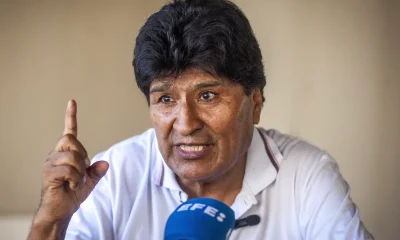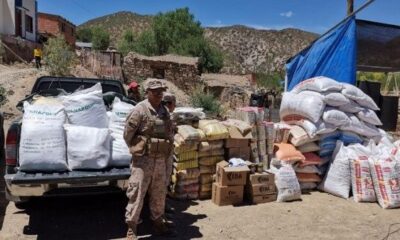International
President of Bolivia stresses the need for regional integration
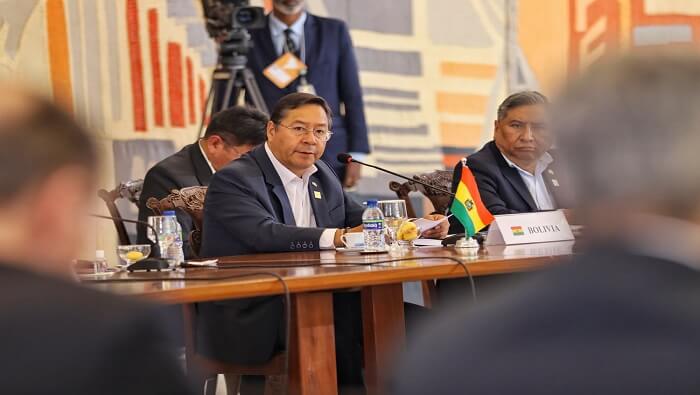
May 31 |
The president of Bolivia, Luis Arce, highlighted on Tuesday the need for true regional integration for the benefit of the peoples.
In the framework of the meeting of South American presidents held in Brazil, the Bolivian president affirmed that an “ideologization of integration and a vision subordinated to the North prevented the consolidation of this effort”.
“The lack of tolerance and the impossibility of assuming that we are diverse and different, but that we can integrate in spite of this for the benefit of our peoples, truncated the union of the nations of the South”, he asserted.
The President added that there have always been interests within and outside the region that have prevented the consolidation of a true space for integration and coordination among the countries.
On the other hand, he said that they are at a crucial moment in history, with the context of world geopolitics in the last two years that has demanded a deep reflection on the role of cooperation, integration and multilateralism in their efforts to build a more just, democratic, equitable and secure world.
“We are facing a critical juncture that can propel our integrationist aspirations to higher levels for the benefit of each and every one of our peoples. It depends on us,” he said.
The head of state stressed that they have witnessed significant changes in the international scenario, with the tendency to configure a new world order based on the balance of powers and the principle of non-interference.
“The transition to a multipolar world may be delayed, but it will not stop. But the inflection in the history of Latin America and the Caribbean, and within it in South America, has not been without great difficulties and setbacks. Old and new types of coups d’état were carried out in the name of democracy and this cannot be repeated,” he said.
Arce recalled various current global challenges such as the climate, health, food, energy, water, poverty and inequality crises, among others, which do not recognize borders and are not limited to a single country, as they require a collective and coordinated response.
“The core of these problems is the multidimensional crisis of the hegemonic system of the planet and of a world order that is intended to be maintained on the basis of imposition, domination and not dialogue,” he said.
He also reaffirmed the relevance of working to declare the world a zone of peace.
International
Zelenski talks to Kellogg in Kiev about sanctions against Russia and the sale of weapons to Ukraine
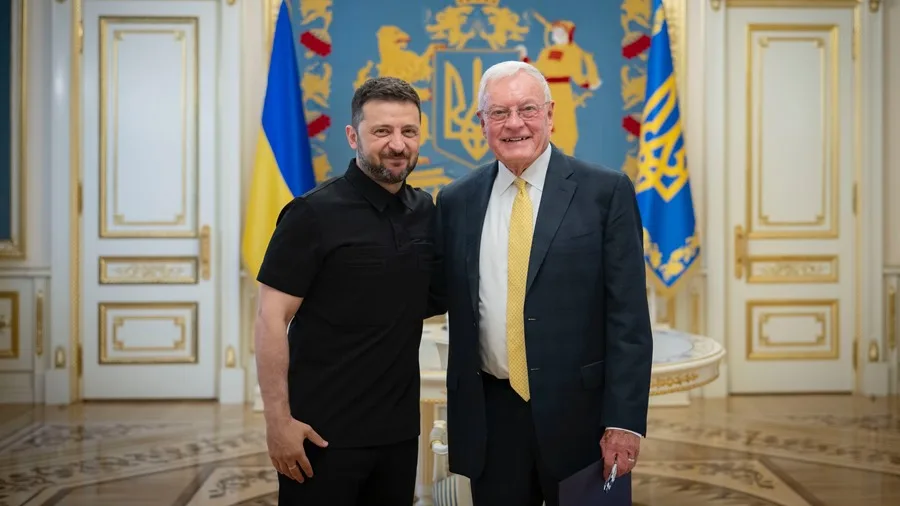
Ukrainian President Volodymyr Zelensky spoke on Monday with the special representative for Ukraine of the White House, retired General Keith Kellogg, about the possibility of the US approving new sanctions against Russia and sending new weapons to Ukrainians that would be paid for with European money.
“We have talked about the road to peace and what we can do together from a practical point of view so that it is closer. This includes strengthening Ukraine’s air defense, joint production and acquisition of defensive weapons in collaboration with Europe,” Zelenski wrote in X about the content of the meeting.
The Ukrainian president also mentioned “sanctions against Russia and those who help it” among the actions with which the United States can contribute to ending the war.
“We have hope in the leadership of the United States, because it is clear that Moscow will never stop if its ambitions, which are not reasonable, are not put to a hold of force,” Zelenski also wrote, who thanked Kellogg for visiting Ukraine and also showed his appreciation for the “important signs of support and positive decisions for both countries” that the US president has made public in recent days.
Kellogg has arrived in Kiev this Monday to spend this week in Ukraine and meet with local leaders. His visit comes after Trump has confirmed that he will send Patriot missile anti-aircraft systems to Ukraine for which several European countries will pay.
Trump has also recently been very critical of the attitude of Russian President Vladimir Putin, whom he reproaches for not intending to take down his arms despite the pro-peace messages that the Kremlin leader has been launching since the US began its efforts to mediate a negotiated solution to the conflict.
International
Patriot missiles, key anti-missile systems for the defense of the Ukrainian sky
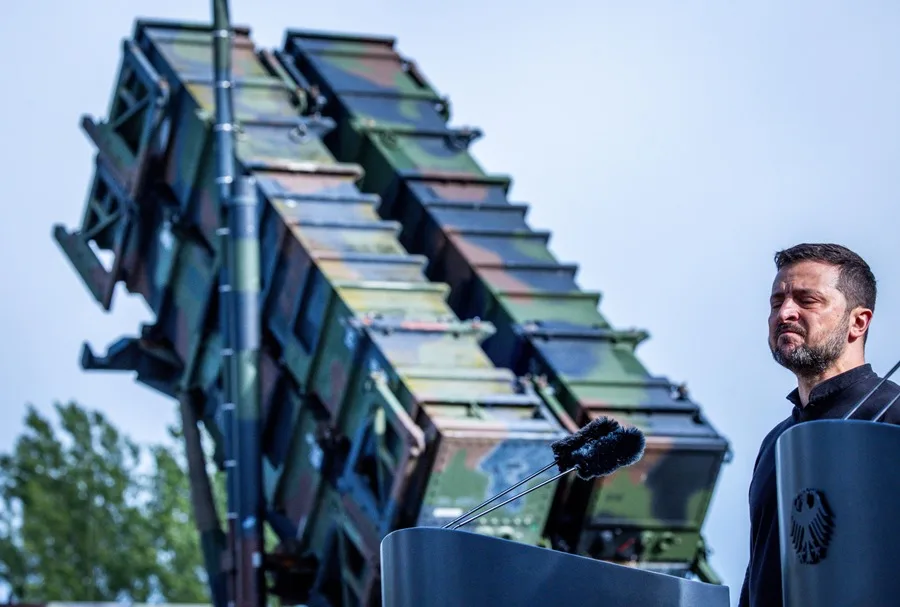
The Patriot missiles, whose shipment to Ukraine has been announced in recent hours by the President of the United States, Donald Trump, who specified that his European allies “will pay for it”, are one of the main anti-ballistic defense systems of the United States Army and serve to intercept attacks launched by adversaries by land and air.
The Patriot missile, designed in the late 1970s by Raytheon originally as an anti-aircraft defense weapon, was modified in the late 1980s to counter short-range ballistic missiles.
They were not tested in combat until 1991, during the Gulf War, when they achieved fame by becoming an almost infallible weapon to now intercept and destroy the Scud missiles used by Iraq, of Soviet manufacture and much slower.
His first operation, on February 18, 1991, was the shooting down at about 5,000 meters high of a Scud missile launched from Iraq against the Saudi base in Dahran.
The Patriot system is a 2.25-meter-long missile, powered by a single-stage rocket, which weighs almost a ton and operates at three times the speed of sound (Mach 3) with a range of 70 kilometers.
The Patriot that was used in the Gulf War was carrying a 90-kilogram explosive charge that exploded by a proximity detonator with such force that the explosion and splinters destroyed the missile against which it was fired.
Since then, the system has undergone modifications that have given it greater precision and that have allowed it to increase its effectiveness not only against ballistic missiles but also against the so-called “cruise”, which have their own navigation means and change course during the flight.
Currently, the Patriot ground-to-air guided weapons system can “eliminate aircraft, helicopters and high-speed ballistic and cruise missiles,” which is possible up to “a height of 20 kilometers and a distance of 60 kilometers.”
A Patriot missile costs about 3 million dollars – three times more than a NASAMS missile (Advanced National Ground-to-Air Missile System), another of the systems that Ukraine has been using.
The Patriot system comprises a radar station, a control system and the missile launchers.
In December 2022, the United States Government, under the presidency of Joe Biden, authorized the dispatch of the Patriot missile system to Ukraine.
The supply only included an anti-aircraft battery, which includes a radar that detects and follows the target, computers, generators and a control station, in addition to eight mini-shing with four missiles ready to fire.
The North American shipment was joined by two other Patriot systems from Germany and the Netherlands, which arrived in Ukraine in April 2023.
A month later, Russia claimed to have destroyed a Patriot anti-aircraft battery in Kiev, which, however, was operational again a few days later, according to the Pentagon.
In their first month of activity alone, Patriot systems sent to Ukraine shot down more than 80 targets, including seven Russian Kinzhal supersonic missiles, according to the Ukrainian Air Force.
The first Patriots shipments have been followed by others throughout the war, including those supplied by Spain and Romania to Ukraine.
With the arrival of Donald Trump to the US presidency last January, military aid from the United States was suspended, and although Ukrainian President Volodymyr Zelensky showed his interest in buying ten Patriot systems, Trump disdained the possibility.
However, at the end of June Trump changed his mind and opened up to the possibility of supplying these missiles to Ukraine, and finally last Sunday he announced that he will send them, but that his European allies “will pay for it.”
International
The rescue operation of missing people ends after a ship was wrecked by a Houthi attack in the Red Sea
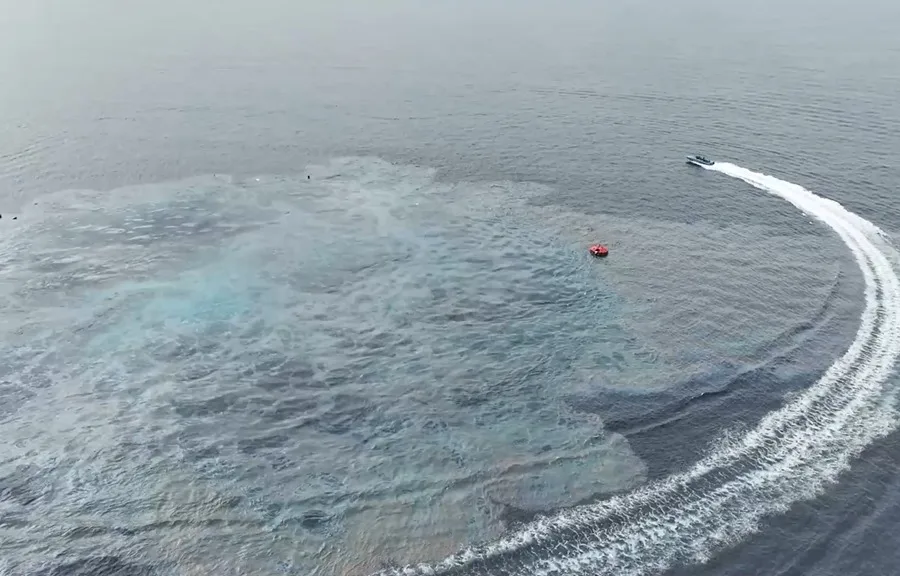
The search and rescue operation of the crew of the cargo ship ‘Eternity C’, sunk four days ago in the Red Sea after an attack by the Houthi rebels, has concluded with the rescue of 10 sailors while another 15 are still missing, the companies responsible for the operation reported on Monday.
“The decision to end the search was made by the company that owns the ship,” the maritime security companies ‘Diaplous’ and ‘Ambrey’, which carried out the search and rescue operation, said in a joint statement.
“The priority now must be to get the 10 rescued people to arrive safe and sound and provide them with the urgent medical support they need at this difficult time,” the statement said, citing the wishes of the owner company, the Greek ‘Cosmoship Management’.
The freighter was attacked on the 7th with drones, grenade launchers and speedboats by the Houthis southwest of the Yemeni port of Al Hodeida with 22 sailors on board and three armed guards, members of the security team, as a spokesman for the Greek company confirmed to EFE on the day of the attack.
The Houthi military spokesman, Yahya Sarea, said in a statement issued three days after the attack that “a group of special forces of the Yemeni Navy (Houti) intervened to rescue several members of the ship’s crew, provide them with medical care and transfer them to a safe place” without specifying the number of crew members or their whereabouts.
The US mission in Yemen accused the Houthis in a statement of kidnapping “many surviving crew members” and demanded their immediate release.
Sources that closely follow the matter estimate that six sailors are currently in the hands of the Houthis, something that has not been confirmed by the rebels, according to the digital edition of the British weekly Tradewinds, specialized in maritime affairs.
It is believed that five people have died in the attack and have sunk with the ship at the bottom of the sea, according to the same source.
-

 Central America5 days ago
Central America5 days agoDengue crisis in Panama: co-circulating serotypes fuel rise in fatal cases
-
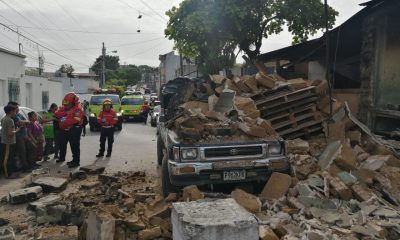
 Central America4 days ago
Central America4 days agoGuatemala hit by over 300 quakes; death toll rises to seven
-

 International5 days ago
International5 days agoICE set to become America’s largest security force under Trump’s $75B immigration overhaul
-

 Central America4 days ago
Central America4 days agoU.S. revokes visas of top Costa Rican lawmakers and constitutional judge
-

 International5 days ago
International5 days agoHarvard faces Federal pressure over immigration docs, autonomy dispute intensifies
-

 International4 days ago
International4 days agoGerman parliament orders removal of LGBTQ+ flags amid growing controversy
-

 International3 days ago
International3 days agoSheinbaum slams ICE raids after 355 mexicans detained and 67,000 repatriated
-

 International3 days ago
International3 days agoTrump defends Bolsonaro, hints at talks with Brazil after tariff warning
-

 International2 days ago
International2 days agoTwo missing after torrential rains cause flooding in Catalonia
-

 International4 days ago
International4 days agoCDC reports record measles outbreaks in 39 U.S. jurisdictions this year
-
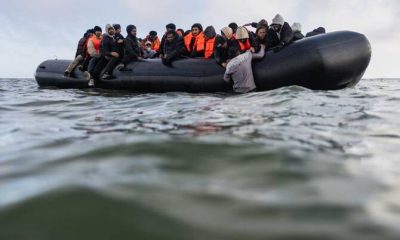
 International4 days ago
International4 days agoUK and France seal innovative migrant exchange deal to curb channel crossings
-

 International4 days ago
International4 days agoFederal judge halts Trump’s order to end birthright citizenship
-

 International4 days ago
International4 days agoUkraine gains $10 billion in commitments during Rome Recovery Forum
-

 International3 days ago
International3 days agoTrump administration begins downsizing ‘bloated’ state department workforce
-

 International4 days ago
International4 days agoSix agents penalized for conduct failures in July 2024 attack on Donald Trump
-

 International21 hours ago
International21 hours agoMexico confirms death of farmworker hurt in ICE raid, calls for investigation
-

 International21 hours ago
International21 hours agoTrump’s 30% tariff undermines U.S.-Mexico talks, but negotiations will continue
-
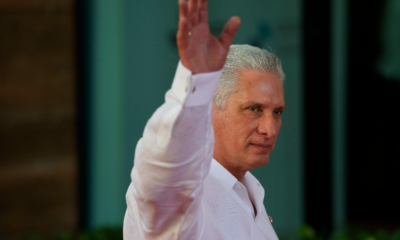
 International2 days ago
International2 days agoU.S. sanctions cuban president Díaz-Canel over regime crackdown on protesters
-
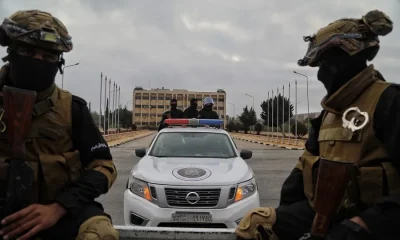
 International9 mins ago
International9 mins agoDeaths from clashes between military groups and clans in southern Syria rise to 30
-

 International8 mins ago
International8 mins agoAnti-mafia operation in Italy with 54 arrested for drug trafficking from Ecuador and Spain
-
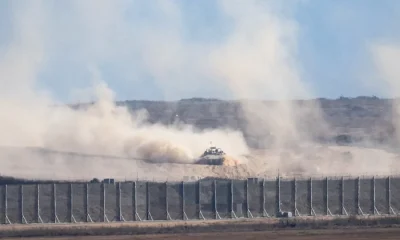
 International3 mins ago
International3 mins agoIsrael kills at least 20 Palestinians in attacks from dawn against the Gaza Strip
-
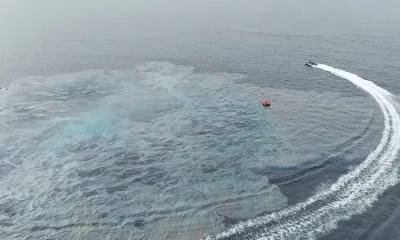
 International2 mins ago
International2 mins agoThe rescue operation of missing people ends after a ship was wrecked by a Houthi attack in the Red Sea





















